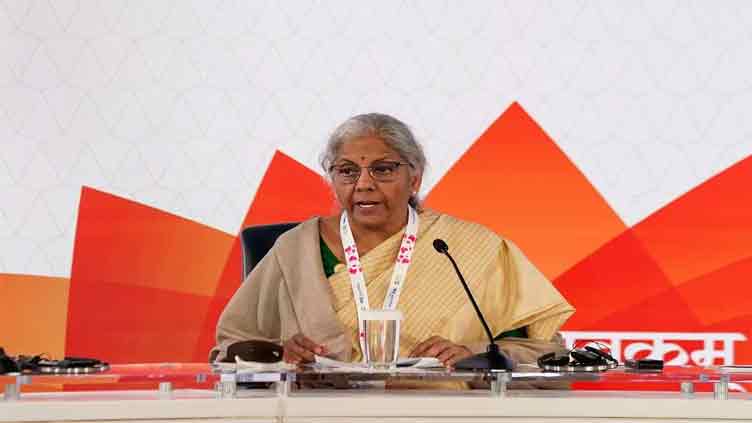India goes for 22pc cess on utility vehicles in addition to GST

Business
Gaming industry to pay 28pc tax on funds collected from customers
NEW DELHI (Reuters) – India's Goods and Services Tax (GST) Council said that uniform taxation would be levied on multi utility vehicles and sports utility vehicles, according to a statement.
The body, chaired by India's Finance Minister Nirmala Sitharaman and comprised of state finance ministers, decided all large cars, by whatever name they are called, will attract 22 per cent cess, which is an additional tax imposed over and above
GST. The cess tax will be on top of a 28pc tax if their length exceeds 4000 mm, have engine capacity of over 1500 cc, and have ground clearance of 170 mm.
However, there is ambiguity whether a cess of 20pc or 22pc should be imposed on multi utility vehicles.
The GST Council also said in the statement that the sale of food and beverages in multiplexes should attract 5pc tax and not 18pc, to ensure uniformity in tax rates across Indian states.
The clarification was sought by industry bodies and multiplex operators who were being asked to charge 18pc by some states. The GST Council, however, said movie tickets and food items bundled and sold will attract 18pc tax.
To manage disputes related to GST, appellate tribunals will be set up in phases. "Our effort and estimate is to make GST tribunal operational in 4-6 months," said Revenue Secretary Sanjay Malhotra at a press briefing.
The creation of GST Appellate will help in the resolution of a multitude of litigations pending under GST, said Abhishek Jain, a partner at KPMG.
The GST Council also decided to provide tax exemptions to satellite launch services provided by private companies.
ONLINE GAMING
India's government on Tuesday said it would impose a 28pc tax on funds that online gaming companies collect from their customers, in a blow to the $1.5 billion industry that has surged in popularity and attracted foreign investment.
Sitharaman said the decision to impose tax on the total amounts gaming companies collect was taken after consultation with states, and the intent was not to hurt the industry.
But industry representatives said it would sap their earnings and the extra charges were likely to be passed on to customers.
"The implementation of a 28pc tax rate will bring significant challenges to the gaming industry. This higher tax burden will impact companies' cash flows," Aaditya Shah, chief operating officer at the gaming app IndiaPlays, said.
Roland Landers, CEO of The All India Gaming Federation, said the decision was "unconstitutional (and) irrational".
The gaming apps are endorsed by sporting heroes in India, where cricket is a national passion, but concerns have mounted over possible addiction and financial losses.
The apps have also attracted big investors.
Dream11, which is the lead sponsor of India's national cricket team and is valued at $8 billion, is backed by Tiger Global. Peax XV - previously Sequoia Capital India - has invested in MPL app.
Dream11 and MPL did not respond to requests for comments.
In fantasy cricket games on Dream11, users create their teams by paying as little as 8 rupees (10 U.S. cents), with a total prize pool of 1.2 million rupees ($14,565).
Until now, the companies paid a small tax on the fee they charged for offering real money games. The change announced on Tuesday will impose a 28% tax on the entire amount collected from players in every game.
The revenue of fantasy gaming platforms during the popular Indian Premier League cricket matches rose 24pc from a year earlier to over $342 million with over 61 million users participating, Redseer consultancy said this

